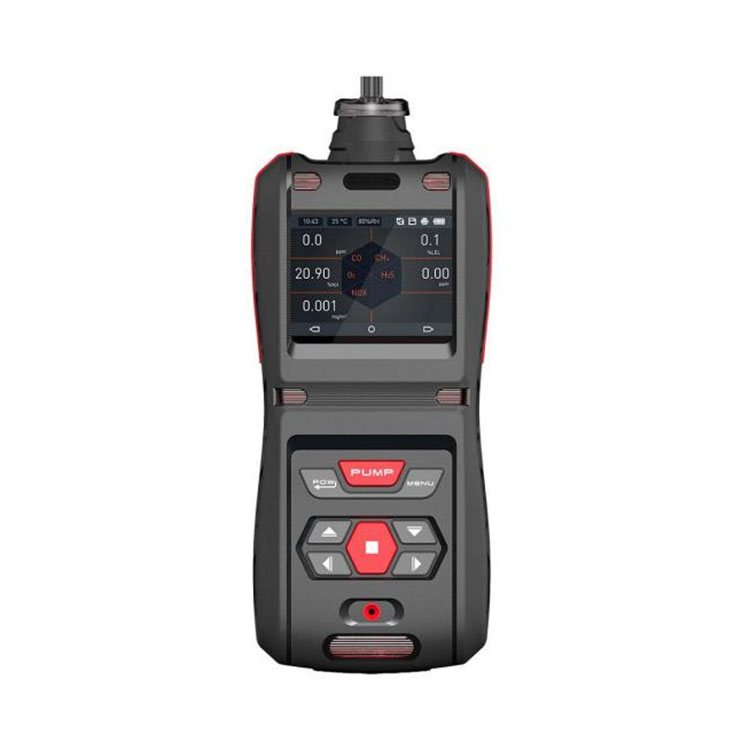What Makes Area Monitors Essential for Workplace Safety and Environmental Protection?
2025-11-05
In modern industrial and environmental safety management, Area Monitors play a crucial role in ensuring real-time detection and alerting against harmful gases, radiation, or other hazardous substances. Whether in oil refineries, laboratories, manufacturing plants, or public areas, these devices serve as the first line of defense in protecting personnel, assets, and the environment. As someone who has worked with safety monitoring systems for years, I can confidently say that choosing the right Area Monitors directly determines the efficiency of your safety program.
What Are Area Monitors and How Do They Work?
Area Monitors are advanced detection instruments designed to continuously monitor air quality and environmental conditions across a wide coverage area. Unlike personal gas detectors, which are worn by individuals, area monitors are installed at strategic points to provide a collective safety net for multiple workers or zones.
These devices operate through integrated sensors that can detect a variety of gases such as oxygen (O₂), carbon monoxide (CO), hydrogen sulfide (H₂S), and volatile organic compounds (VOCs). Once dangerous levels are detected, the monitor automatically triggers visual and audible alarms, sends wireless alerts, and even connects to remote control centers for immediate action.
Why Are Area Monitors Important in Industrial Safety?
In high-risk environments—such as petrochemical plants, construction sites, or confined spaces—airborne hazards can appear suddenly and without warning. Area Monitors provide real-time situational awareness, reducing the risk of accidents and ensuring timely evacuation or intervention.
Moreover, these devices enhance compliance with international safety standards such as OSHA, ISO, and IEC. Companies like Beijing Zetron Technology Co., Ltd. integrate cutting-edge detection technology with durable materials to ensure reliability in the harshest conditions.
Key advantages include:
-
Continuous Real-Time Monitoring: Ensures constant air quality assessment.
-
Wide Area Coverage: Suitable for both indoor and outdoor monitoring.
-
Wireless Connectivity: Enables remote supervision and data management.
-
Rugged Construction: Resistant to dust, moisture, and extreme temperatures.
-
High Sensitivity and Fast Response: Immediate alarm activation upon hazard detection.
What Are the Technical Parameters of Our Area Monitors?
Below is a table summarizing the key technical specifications of Beijing Zetron Technology Co., Ltd. Area Monitors:
| Parameter | Specification |
|---|---|
| Detection Range | Up to 200 meters radius |
| Detected Gases | O₂, CO, H₂S, CH₄, VOCs, NO₂, SO₂, etc. |
| Sensor Type | Electrochemical / Infrared / Catalytic |
| Power Supply | Rechargeable Li-ion battery / AC power |
| Operation Time | 24–72 hours (battery mode) |
| Alarm Types | Visual (LED), Audible (110 dB), Wireless |
| Communication Interface | Wi-Fi, Bluetooth, 4G, RS485, Modbus |
| Display | 4.3" LCD color screen |
| Protection Rating | IP66 / IP67 (Waterproof and Dustproof) |
| Operating Temperature | -40°C to +60°C |
| Data Storage | 100,000+ event records |
| Weight | Approx. 3.5 kg |
These specifications demonstrate the balance between technological sophistication and user practicality. The flexible communication options and durable design ensure that the monitors can function effectively in any environment.
How to Use Area Monitors Effectively?
Operating Area Monitors correctly is as important as choosing the right model. Before installation, it's essential to conduct a site survey to identify potential gas sources and air movement patterns. Once installed, regular calibration and maintenance ensure reliable performance.
Basic Usage Steps:
-
Placement: Position the monitor near potential leak sources or worker areas.
-
Activation: Power on the device and ensure the sensors are functioning correctly.
-
Calibration: Perform regular calibration (typically every 6 months) using certified gas mixtures.
-
Monitoring: Connect the monitor to a central system for continuous data collection.
-
Response: Follow emergency protocols if alarms are triggered.
Properly maintained Area Monitors can operate continuously for years, reducing the risk of undetected hazards and maintaining compliance with safety regulations.
What Are the Main Applications of Area Monitors?
The versatility of Area Monitors makes them indispensable across various industries:
-
Oil & Gas Industry: Detects leaks of combustible or toxic gases in refineries and drilling sites.
-
Chemical Plants: Monitors emissions and prevents exposure to harmful substances.
-
Construction Sites: Ensures worker safety in confined or partially ventilated areas.
-
Mining Operations: Alerts workers of potential gas buildup or oxygen deficiency.
-
Public Safety & Environmental Monitoring: Used in city surveillance, tunnels, and event venues.
Beijing Zetron Technology Co., Ltd. offers customized solutions tailored to specific industrial needs, ensuring optimal protection and system integration.
FAQ About Area Monitors
Q1: What types of gases can Area Monitors detect?
A1: Area Monitors can detect multiple gas types depending on the sensor configuration. Common gases include oxygen (O₂), carbon monoxide (CO), hydrogen sulfide (H₂S), methane (CH₄), and volatile organic compounds (VOCs). Specialized sensors can also be added for NO₂, SO₂, or ammonia detection.
Q2: How long can an Area Monitor operate without recharging?
A2: Most modern Area Monitors from Beijing Zetron Technology Co., Ltd. feature long-life lithium batteries that can last up to 72 hours in continuous operation. When powered by AC or solar options, they can run indefinitely.
Q3: Can Area Monitors be integrated into existing safety systems?
A3: Yes. Our Area Monitors support multiple communication interfaces—Wi-Fi, 4G, RS485, and Modbus—allowing easy integration with SCADA systems, control panels, or cloud-based monitoring platforms.
Q4: What maintenance is required for Area Monitors?
A4: Regular calibration is essential for accuracy, typically every 3–6 months depending on usage conditions. Filters and sensors should also be inspected periodically to prevent false alarms or sensor degradation.
Why Choose Beijing Zetron Technology Co., Ltd.?
With years of experience in gas detection and environmental monitoring, Beijing Zetron Technology Co., Ltd. delivers innovative Area Monitors designed for reliability, precision, and durability. Our R&D team continuously improves sensor performance, ensuring customers benefit from the latest technology.
We offer full support—from system design and installation to training and after-sales maintenance—guaranteeing safety compliance and peace of mind.
How Can You Enhance Safety with Area Monitors?
In today's industries, safety cannot be left to chance. Area Monitors are more than just devices; they are essential components of a comprehensive safety management system. By investing in high-quality solutions like those offered by Beijing Zetron Technology Co., Ltd., you ensure protection for your workers, assets, and the environment.
For more details or product inquiries, please contact Beijing Zetron Technology Co., Ltd. Our experts are ready to assist you in selecting the right monitoring solutions for your safety needs.



